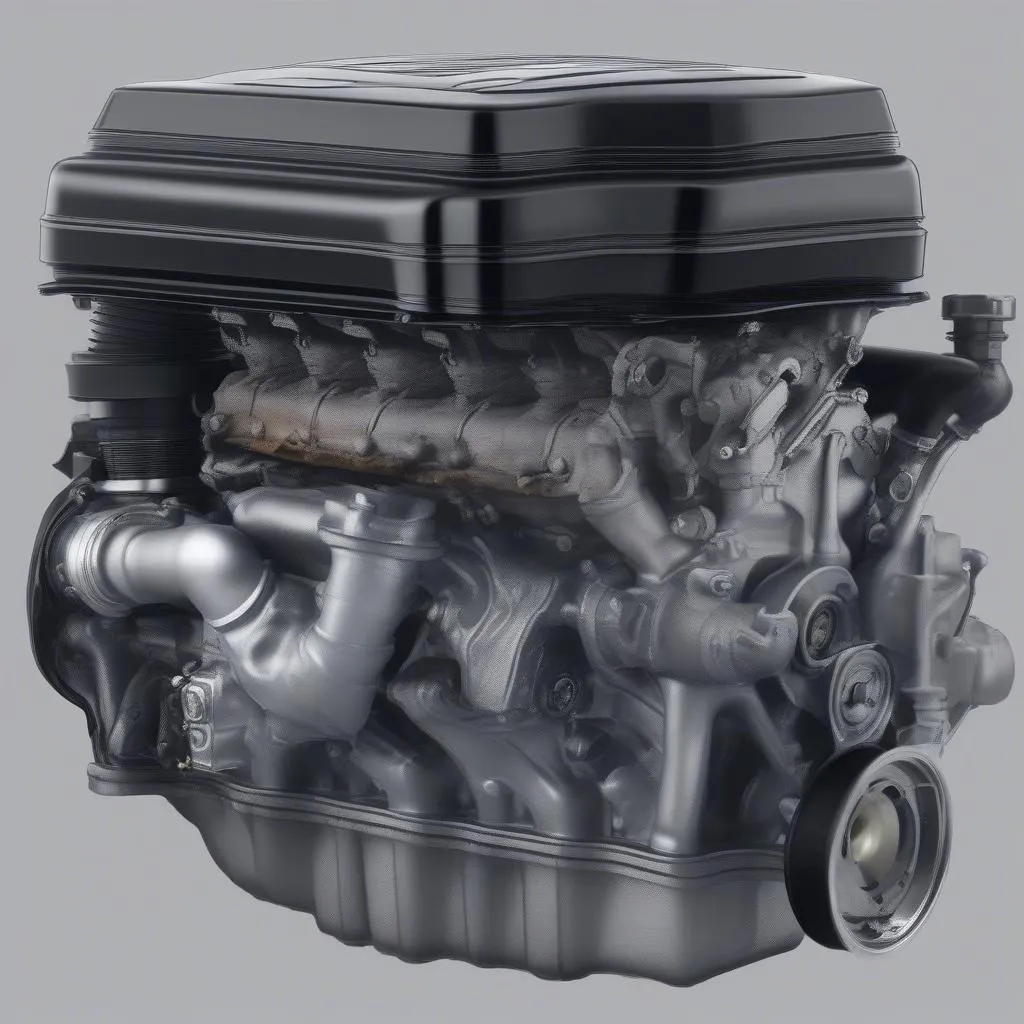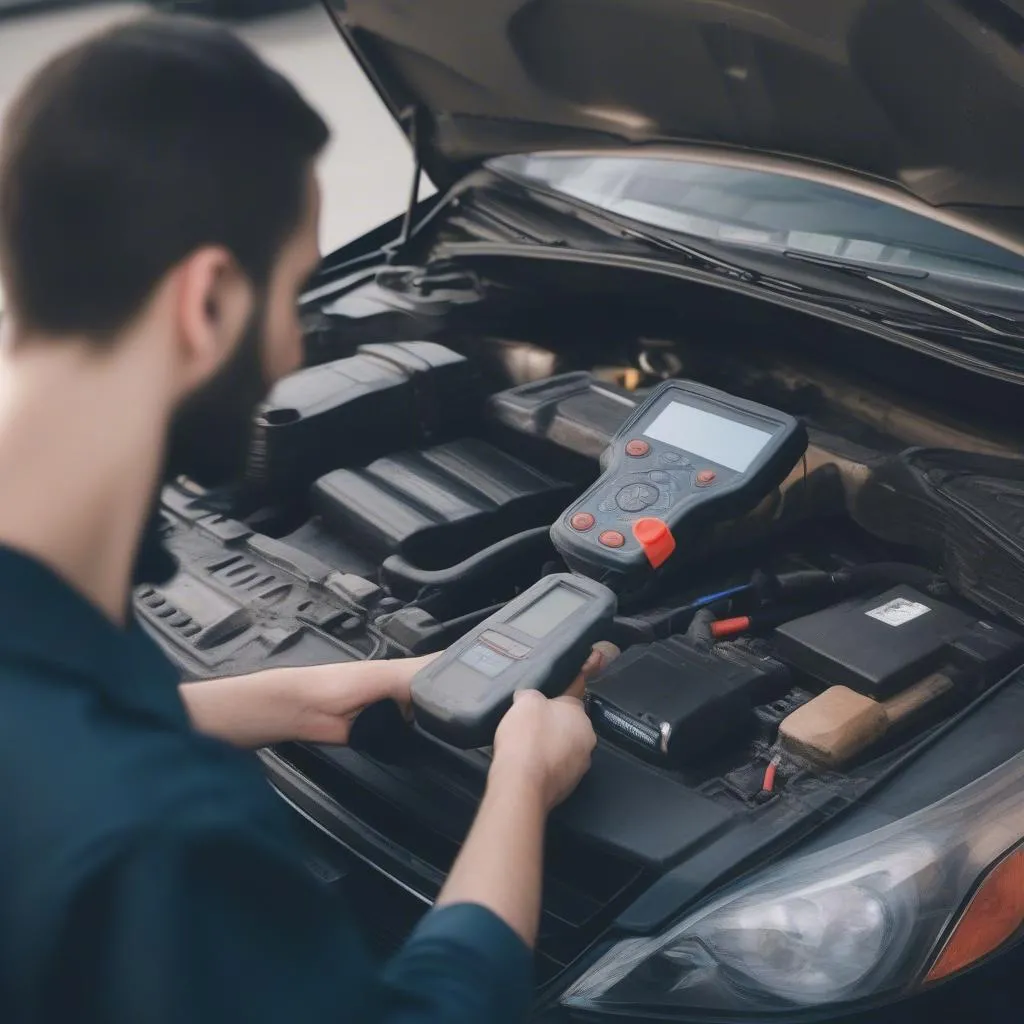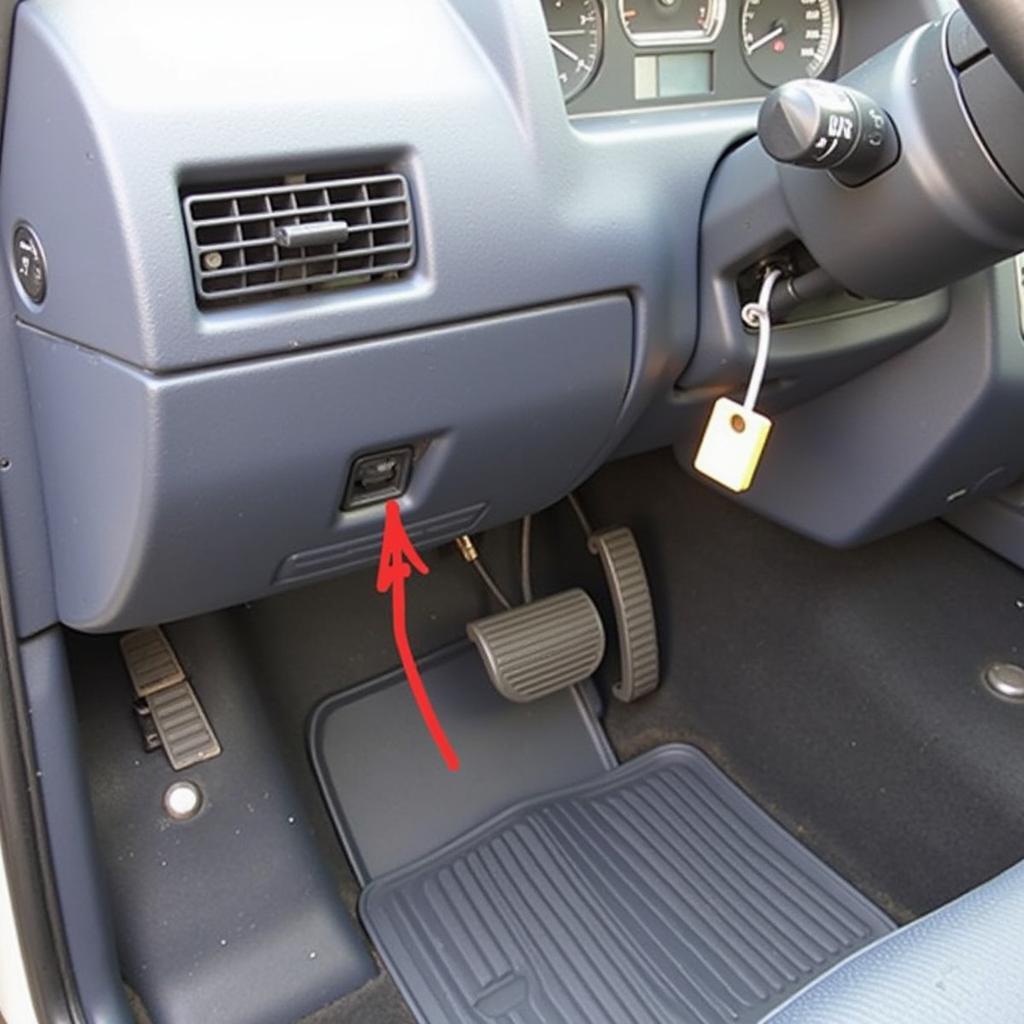Is your 2008 Mercedes-Benz GL320 suddenly thirsty for oil? You’re not alone. This luxurious SUV, while renowned for its comfort and performance, has a known issue with oil consumption. But don’t worry, this problem is often fixable. This article will guide you through the common causes, symptoms, and solutions for excessive oil consumption in your GL320.
Understanding the Problem: Why Does My GL320 Consume So Much Oil?
Several factors can contribute to high oil consumption in a 2008 Mercedes GL320. Here are the most common culprits:
- Worn Valve Stem Seals: These seals prevent oil from seeping into the combustion chamber. Over time, they can harden and crack, allowing oil to leak past.
- Clogged Piston Rings: Piston rings create a seal between the piston and cylinder wall, regulating oil consumption. Clogged or worn rings can disrupt this seal, leading to oil burning during combustion.
- PCV Valve Failure: The Positive Crankcase Ventilation (PCV) valve regulates pressure in the crankcase. A malfunctioning PCV valve can disrupt this pressure, leading to oil being drawn into the intake manifold and burned.
Recognizing the Signs: Is My GL320 Burning Oil?
Early detection is key to preventing further engine damage. Look out for these telltale signs:
- Frequent Oil Top-Ups: Are you constantly refilling your oil between scheduled oil changes? This is a major red flag.
- Blue Exhaust Smoke: Blue smoke, especially on startup or acceleration, indicates oil burning in the combustion chamber.
- Spark Plug Fouling: Oil-fouled spark plugs will have a black, oily residue.
Gearing Up for a Fix: Essential Tools and Preparations
Before you begin, gather the necessary tools and equipment. While a professional mechanic is best suited for this repair, mechanically-inclined owners may choose to tackle it themselves. You will likely need:
- Socket Set and Torque Wrench: For removing and installing various engine components.
- Valve Spring Compressor: Essential for replacing valve stem seals.
- Piston Ring Compressor: Needed if replacing piston rings.
- New Gaskets and Seals: Always replace these when disassembling engine components.
- Engine Oil and Filter: Be prepared for an oil change after the repair.
Fixing the Issue: Step-by-Step Guide
Note: This is a simplified guide. Consult your vehicle’s repair manual and seek professional assistance if needed.
- Diagnosis: Accurately diagnose the source of the oil consumption problem. This may involve a compression test, leak-down test, or inspection of the PCV system.
- Access Affected Components: Depending on the source of the problem, you may need to remove the cylinder head(s) to access the valve stem seals or piston rings.
- Replace Faulty Components:
- Valve Stem Seals: Carefully remove and replace the old seals with new ones.
- Piston Rings: Remove the old rings using a piston ring compressor and install new rings, ensuring proper gap spacing.
- PCV Valve: This valve is usually easier to access and replace.
- Reassemble and Test: After replacing the faulty components, reassemble the engine, ensuring all components are properly torqued. Refill with fresh engine oil and filter, then start the engine and check for leaks.
 Leaking Engine
Leaking Engine
Frequently Asked Questions
Q: Can I drive my GL320 with high oil consumption?
A: It’s not advisable. Driving with low oil levels can lead to catastrophic engine damage. Address the issue promptly.
Q: How much does it cost to fix oil consumption in a 2008 GL320?
A: The cost can range widely depending on the root cause and labor rates. Valve stem seal replacement is typically less expensive than piston ring replacement.
Q: Are there any preventative measures to avoid oil consumption issues?
A: Regular maintenance, including timely oil changes with high-quality oil, can help prevent premature wear of engine components. Using a diagnostic tool like those offered by CARDIAGTECH can help you identify potential issues early on.
 Car Diagnostic Tool
Car Diagnostic Tool
Conclusion
Excessive oil consumption can be a frustrating issue, but understanding the causes, symptoms, and solutions can help you address the problem effectively. Remember, early detection and prompt repair are crucial to avoid costly engine damage. While this guide provides a general overview, consult a qualified mechanic for accurate diagnosis and repair.


